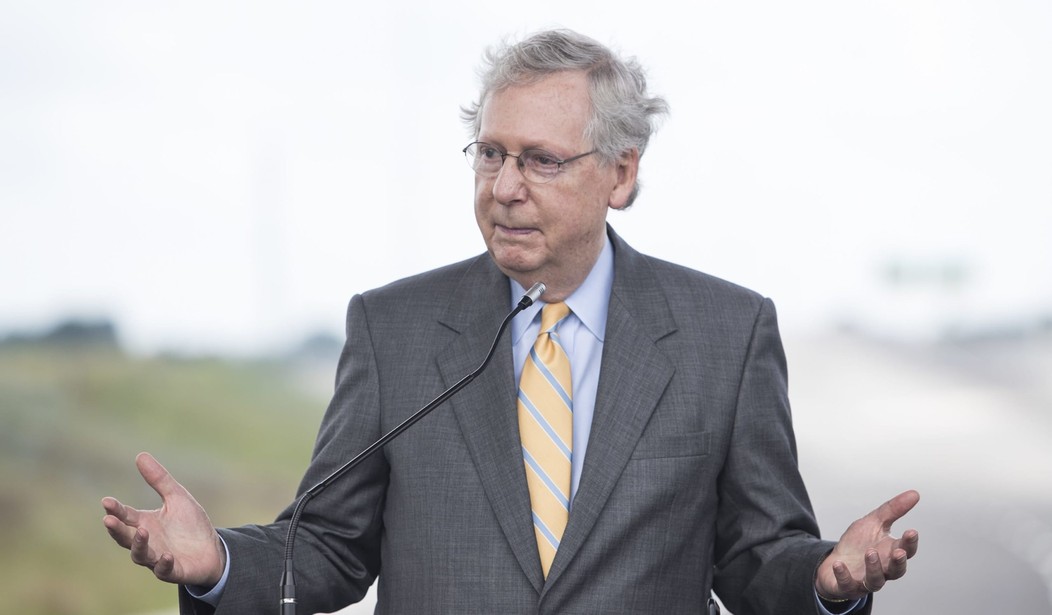WASHINGTON — Senate Majority Leader Mitch McConnell (R-Ky.) is cutting the Senate’s five-week summer break short amid cries from GOP lawmakers that more time is needed to pass healthcare and other agenda items before leaving town.
“Once the Senate completes its work on healthcare reform, we will turn to other important issues including the National Defense Authorization Act and the backlog of critical nominations that have been mindlessly stalled by Democrats,” McConnell announced today.
“In order to provide more time to complete action on important legislative items and process nominees that have been stalled by a lack of cooperation from our friends across the aisle, the Senate will delay the start of the August recess until the third week of August,” he added.
The House and Senate were scheduled to leave town at the end of the day on July 28 and not return until after Labor Day.
Just before lawmakers left for the Fourth of July, Sens. David Perdue (R-Ga.), Steve Daines (R-Mont.), Joni Ernst (R-Iowa), John Kennedy (R-La.), James Lankford (R-Okla.), Mike Lee (R-Utah), Mike Rounds (R-S.D.), Luther Strange (R-Ala.), Dan Sullivan (R-Alaska), and Thom Tillis (R-N.C.) wrote to McConnell to make a case that 33 working days left before the end of the fiscal year “does not appear to give us enough time to adequately address the issues that demand immediate attention.”
“Therefore, we respectfully request that you consider truncating, if not completely foregoing, the scheduled August state work period, allowing us more time to complete our work,” they said.
McConnell said the latest version of the healthcare bill will be introduced Thursday. There’s still no indication if the disagreements among leadership, conservatives and moderates in the caucus have been settled enough to achieve the required number of votes.
“Mitch is not the kind of guy to take a knee,” Sen. Bill Cassidy (R-La.) told MSNBC this morning. “Now, granted, it might occur, but I would like to think, Mike, that there would still be that path forward. If not this bill, another. And I don’t think any of us are ready to take a knee.”
“I haven’t seen the current Senate bill. So that’s a little bit hard to say,” Cassidy added. “But one of the ways to keep people from being worse off is by giving states large block grants, if you will, that they would wrap around those who might be negatively affected to keep them from being negatively affected.”
“I would like to think that the people who would be worse off would be the special interests. That kind of benefited under Obamacare. I’d like to think that we kind of take dollars back from them and distribute to those who need it. But I have not seen the final bill yet.”
Senate Minority Leader Chuck Schumer (D-N.Y.) stressed on the Senate floor Monday that “we Democrats are willing to work, we’re ready to work with our Republican colleagues on healthcare.”
“Republican leadership has been trying to cajole their members into voting for this bill by saying that if Republicans fail to pass this bill, they’ll have to work with Democrats. Republican leadership is not telling their members: vote for this bill because it’s a good bill. No – they’re saying vote for this bill or you’ll have to work with Democrats,” Schumer said.
“When you can’t defend the substance of the bill at all, it’s time to move on. When using bipartisanship as a threat is your only argument, it’s time to move on,” he added. “My Republican friends should not be so afraid of working with we Democrats that they’re bullied into supporting a terrible bill. The U.S. Senate, we all know this, was intended as a forge for bipartisan consensus, a cooling saucer, as the Founding Fathers said. In the Senate, bipartisanship should be the first option, not the last resort.”
This story was updated at 2:45 p.m. EST









Join the conversation as a VIP Member